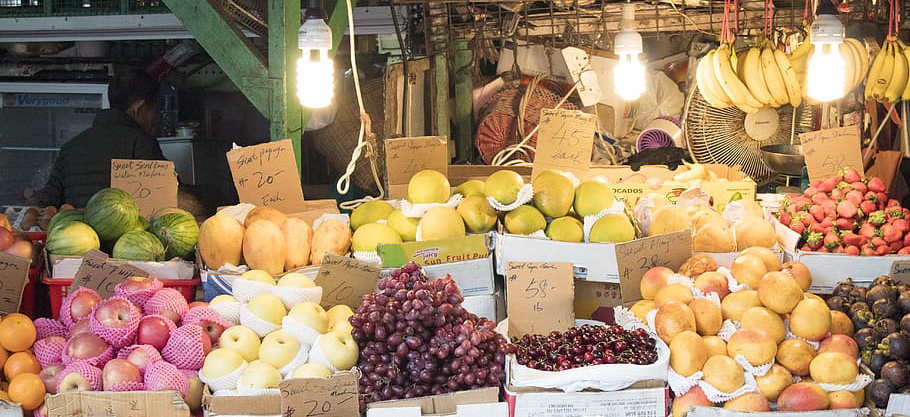Dakar, 10 years later?

Florence Egal
Independent expert in food security
The 1st Summit of the World's Regions on Food Security was held in Dakar in January 2010. Representatives of regional governments and associations of regional governments from the five continents noted that the commitments made at the World Food Summit in 2002 had had little effect, that the global economic crisis of 2008-2009 had worsened the situation and that the food crisis was threatening international stability. It was time to recognize that global food security was a political issue and that local authorities and rural territories had a major role to play. Regional governments, as intermediary governance bodies, were indeed the relevant level for identifying local needs and ensuring the coherence of local development practices with national strategies. They are in a position to ensure the participation of stakeholders in their territories in the definition and implementation of appropriate local policies.
The Forum of Global Associations of Regions (FOGAR) therefore called for the Regions to be integrated into the global governance of food security and for them to participate in the Committee for Food Security. It was concerned about the repercussions of the excessive liberalisation of agricultural products on territories and the impact on local populations of international negotiations on land resources. It recognized the need for ecologically intensive agriculture that made the most of the assets and constraints of each territory and gave primacy to small producers and local traditional knowledge. In accordance with the principle of subsidiarity, the regions undertook to promote local markets and short circuits in a national and cross-border context; to encourage local investment; to decide on infrastructure on the basis of a territorial logic; to mobilise local knowledge and to develop traditional production techniques; to encourage the emergence of local initiatives by strengthening the capacity of actors; to promote at local level sustainable production and natural resource management practices and measures to mitigate and adapt to the effects of climate change; and to federate producer organisations in order to deal with oligopolies.
In October 2012 in Medellin, ORU-FOGAR recalled the commitment of the Federated States and Regional Governments in Rio to sustainable development, expressed concern about the impact of climatic incidents on agricultural production and noted that the situation was not changing much. The final declaration of this 2nd summit recalled the importance of the territorial approach to development as the relevant scale for the construction of long-term integrated structural solutions that are best able to respond to the problems of rural/urban interaction, in close collaboration with the national and international levels; and called for specific territorial characteristics to be taken into account at the global level for the recognition and protection of the diversity of terroirs and cultures and the maintenance of the plurality of knowledge. ORU-FOGAR undertook to promote pilot "territorialized food systems" aimed at strengthening the food autonomy of territories in terms of food security through the relocation of production, consumption and distribution.
In the run-up to the World Summit on Food Systems in 2021, these issues are still on the agenda and the initiatives of the various actors have multiplied. The more than 200 cities of the Milan Pact have committed themselves from 2015 to promote sustainable urban food systems in their territories. The United Nations Conference on Housing and Sustainable Urban Development (Habitat III) adopted in 2016 in Quito the new urban agenda which emphasizes urban-rural linkages. UN-Habitat published in 2017 Implementing the New Urban Agenda by Strengthening Urban-Rural linkages and in 2019 Urban-Rural Linkages: Guiding Principles to Advance Integrated Territorial Development. The first global forum on urban-rural linkages was co-organized in November by UN-Habitat and Zhejiang Province and local authorities in Songyang, China, on the theme Rural Revitalization through Innovations and Valorization.
But governance is not there and remains the first obstacle to sustainable development. The institutions and donors that support them are competing with concepts and initiatives that all claim to be based on an inter-disciplinary and multi-actor approach to sustainable development and add to the confusion and delay of the 2030 agenda. The problem lies at two levels: the national level, which is divided into sectors and is seen as the only legitimate interlocutor by multilateral and bilateral institutions, also divided into sectoral silos, which find it difficult to manage complexity and sustainable development and are reluctant to support genuine decentralisation; and the sub-national and inter-country level, characterised by the proliferation of uncoordinated and often dispersed institutions, networks and initiatives.
The political situation in a growing number of countries clearly reflects the revolt of the territories against the process of economic and financial liberalization, which too often empties the countryside, accelerates migration, degrades the environment and aggravates socio-economic differences, and against the decision-making of national governments that no longer represent their interests.
In the face of this worrying observation, however, there are some grounds for optimism. The scientific world is now aware of the need for a new paradigm for research to reorient food systems. The Living Territories Conference organized in Montpellier in February 2018 concluded that an alliance is needed to promote a territorial approach beyond the labels of one and the others ., which could be a point of aggregation for national and international stakeholders.
The emergence of climate change and the environment in international debates should make it possible to rethink food systems around bioregions that are more relevant to the issue of food security and sustainable development than the political, administrative and electoral boundaries currently in force.
Last but not least, the growing mobilization of young people, the population and civil society should influence both the demand for consumers who are aware of the health, social and environmental implications of their food choices, and the political agendas of the nations concerned.








































































